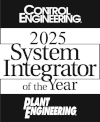Fact or Fiction: Debunking IT/OT Industrial Network Security Myths
In today’s manufacturing landscape, the convergence of IT (Informational Technology) and OT (Operational Technology) systems plays a critical role in driving efficiency, empowering in-depth data analysis, and optimizing operations. This integration enables real-time monitoring and facilitates well-informed decision-making by consolidating data from diverse sources. However, it also brings significant security challenges, as it expands the potential for attacks and amalgamates traditionally isolated systems. The heightened connectivity between IT and OT may create vulnerabilities that malicious actors could exploit to disrupt operational processes and access sensitive data. As a result, comprehensive and advanced security strategies are imperative to fortify these integrated environments.
In this free webinar, we will verify truths and address common misconceptions about industrial network security that allow our IT and OT audience to gain valuable insights based on client experiences. You will leave with best practices and practical solutions that enhance the security of the IT and OT environments in your facility.
E Tech Group team members, Matt Smith, Network Architect, and Laurie Cavanaugh, Vice President of Business Development leads this webinar debunking security myths while deliver tips and best practices on OT network security.





